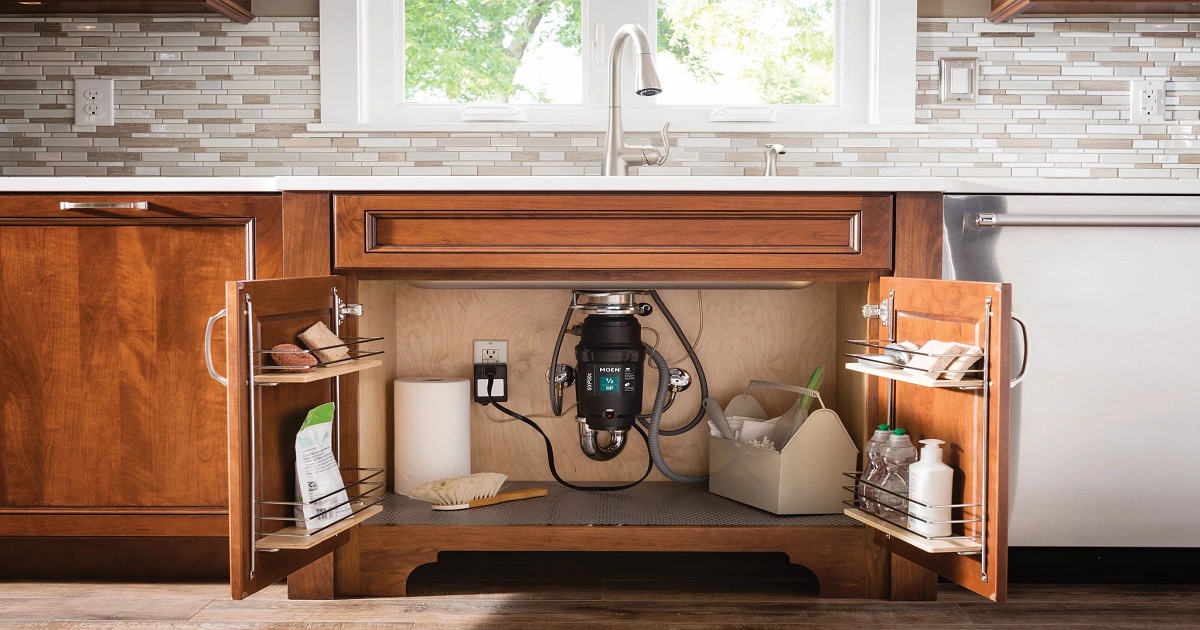In the realm of household convenience, one innovation has quietly transformed our kitchens and had a profound impact on our daily lives: the garbage disposal. What was once a simple mechanism for grinding food scraps has evolved into a sophisticated appliance that not only reduces environmental impact but also enhances the efficiency of waste management. In this article, we delve into the fascinating world of garbage disposal innovation, exploring the advancements that have propelled this humble kitchen device into a powerful ally in the quest for sustainability.
The Evolution of Garbage Disposal Technology
The history of garbage disposals can be traced back to the early 20th century, with the first patent granted in 1935. However, it wasn’t until the latter half of the century that these devices gained widespread popularity in American households. Originally, garbage disposals were designed for the singular purpose of reducing food waste and preventing it from clogging drains. Today, they have become indispensable components of modern kitchens, thanks to continuous innovation.
One of the key advancements in garbage disposal technology is the development of high-torque, energy-efficient motors. These motors not only provide more power for effective grinding but also contribute to the overall sustainability of the appliance. Modern garbage disposals are designed to operate on minimal electricity while maximizing performance, aligning with the growing demand for eco-friendly household solutions.
Smart Integration for Enhanced User Experience
As technology continues to infiltrate every aspect of our lives, garbage disposals have not been left behind. The integration of smart technology has brought a new level of convenience and control to these devices. Smart garbage disposals are equipped with sensors and connectivity features that allow users to monitor and control the appliance remotely through smartphone apps.
Imagine being able to check the status of your garbage disposal, receive notifications for maintenance, or even adjust its settings with a few taps on your phone. This level of integration not only simplifies the user experience but also promotes responsible usage and longevity of the appliance. As we move towards a more interconnected world, smart garbage disposals are poised to become an integral part of the smart home ecosystem.
Environmental Impact and Sustainability
The environmental impact of food waste cannot be overstated. Traditional disposal methods, such as landfilling, contribute to greenhouse gas emissions and strain municipal waste management systems. Garbage disposals offer an eco-friendly alternative by diverting food waste from landfills and utilizing it for beneficial purposes.
In recent years, there has been a concerted effort to develop garbage disposals that not only grind food waste efficiently but also facilitate the composting process. Some models are equipped with advanced grinding mechanisms that transform food scraps into fine particles, making them suitable for composting. This innovation aligns with the global push towards sustainable waste management practices and encourages users to actively participate in reducing their carbon footprint.
Anti-Jamming Mechanisms and Durability
One common challenge with traditional garbage disposals is the occurrence of jams, which can disrupt their operation and lead to costly repairs. Innovations in anti-jamming mechanisms have addressed this issue, ensuring smoother operation and increased durability.
Advanced garbage disposals now feature technologies that detect potential jams and automatically reverse the grinding direction to clear obstructions. This not only prevents damage to the appliance but also minimizes the need for manual intervention. The result is a more reliable and long-lasting device that requires less maintenance, providing users with peace of mind and a hassle-free experience.
The Role of Consumer Education
While garbage disposal technology has advanced significantly, the key to unlocking its full potential lies in consumer education. Many users are unaware of the proper ways to use and maintain their garbage disposals, leading to premature wear and tear. Manufacturers and environmental organizations play a crucial role in disseminating information about best practices, emphasizing responsible use, and promoting the benefits of these innovative devices.
Conclusion
The evolution of garbage disposal technology has transformed a once-simple kitchen appliance into a powerful tool for waste reduction and sustainability. From high-torque motors to smart integration and anti-jamming mechanisms, these innovations have enhanced the efficiency, durability, and environmental impact of garbage disposals. As we embrace the era of smart homes and eco-conscious living, the role of these unassuming devices is set to become even more prominent, paving the way for a greener and more convenient future. It is through continued innovation, coupled with consumer education, that we can fully unleash the power of garbage disposal technology and make a meaningful impact on our journey towards a more sustainable world.










